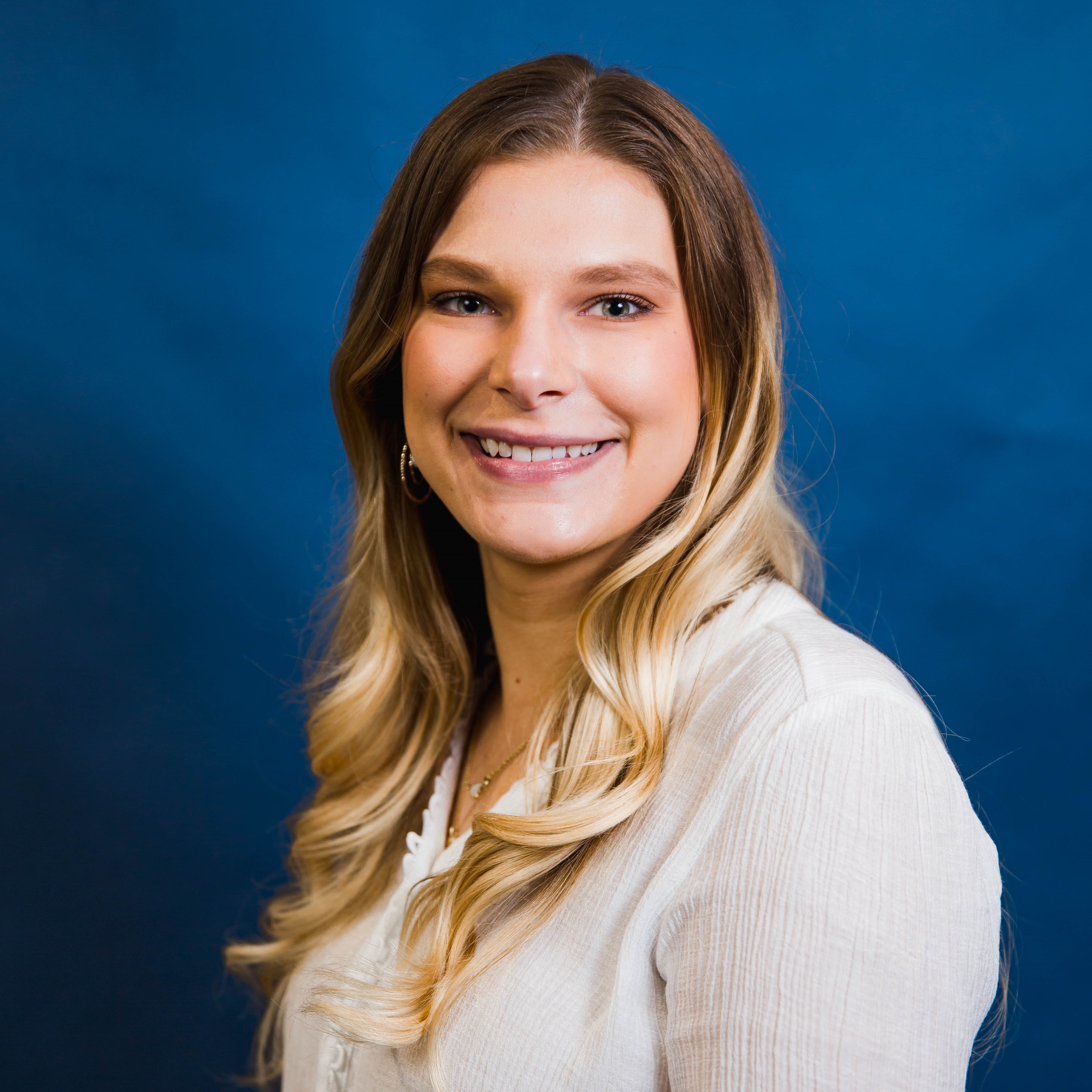Do you have questions about recording and storing your calls with CallVault? Good news — we have answers!
Below, we’re answering some frequently asked questions on the Ritter Platform’s call recording software, CallVault. Use this table of contents to quickly navigate to sections you have questions about. Use the orange arrow on the left side of your screen to return to the top of this post.
- General Questions
- When to Record
- Using Your Generated Inbound CRM Number
- If A Client Refuses Recording
- Provided Disclaimer Scripts and Verbiage
- Storage of Recorded Calls
- Technical Questions
- Miscellaneous
General Questions
When did Centers for Medicare & Medicaid Services’ (CMS’) Medicare call rules go into effect?
These rules went into effect on October 1, 2022.
Are the recording rules set by CMS or the FMO (such as Ritter?)
The rule is set by CMS. Ritter’s interpretations of the rule are informed by those of the carriers we contract with. As your FMO, Ritter is interested in providing you tools, resources, and support to comply with all CMS guidelines.
Do these rules only apply during the Annual Enrollment Period?
No. These rules apply for certain Medicare client communications indefinitely.
What plans and products fall under the Final Rule from CMS?
Medicare Advantage Prescription Drug (MAPD), Medicare Advantage (MA), and Part D prescription drug plan (PDP) products fall under this rule for third-party marketing organizations (TPMO) sales call recording.
Does the call recording requirement apply to Medicare Supplement, hospital indemnity, or ancillary products?
No. These TPMO requirements are in place for Medicare Advantage (with and without Part D coverage) and stand-alone Part D plans. If you are calling for the solicitation of Medicare Supplement or other lines of business, these guidelines do not apply, and you will not need to record. Please keep in mind you must still follow all state and carrier guidelines for those lines of business.
What if a Medicare Supplement product presentation and sale turn into an MAPD, MA, or PDP presentation and sale?
The Medicare Supplement sales presentation does not require call recording. However, if the call pivots to discuss MAPD, MA, or PDP options, a recording of the call must be started immediately.
What if a client calls about a plan that I don’t represent?
In this situation, we’d still advise that you record this call. It’s likely that you’ll be comparing the plan they are looking for with products you currently offer in your portfolio.
What types of calls need to be recorded?
According to the CMS 2024 Final Rule, call recording is limited to marketing, sales, and enrollment calls. “Marketing” includes retention marketing, aimed at influencing a beneficiary to stay enrolled in a current plan, and as well as the mention of any benefits (e.g., dental, vision, hearing, premium reduction, and cost savings).
Do in-person MAPD, MA, and PDP appointments and sales need to be recorded?
No. In-person meetings and sales do not need to be recorded. See more about When to Record.
Is there a cost for using CallVault?
No. The CallVault compliant call recording feature is available today to all agents registered with RitterIM.com.
Is there a step-by-step guide to using CallVault?
Yes. You can find detailed step-by-step instructions on our Docs Site (requires login to RitterIM.com) or by reviewing this Ritter blog post.
Is there a way I can practice using CallVault?
Yes. This feature is live on the Ritter Platform. Please feel free to test it out! In fact, we encourage it. Read our other best practices recommendations here.
When to Record
If I talk to my client three times in one day, will they need recorded all three times?
Yes. Based on our current interpretation that each call with a client must be recorded, if you would talk to your client multiple times in one day, each call must be recorded and precede with the TPMO disclaimer.
Do follow-up/check-in phone conversations with clients also need to be recorded?
No. Agents should not need to record calls to simply set appointments or check in after sales.
Marketing, sales, and enrollment calls are the only types of calls that need to be recorded, per CMS. “Marketing” includes “retention-based marketing,” or influencing a beneficiary’s decision to stay enrolled in a plan. “Marketing” also includes materials that mention any benefits, including widely available ones, such as dental, vision, and hearing, premium reduction, and cost savings.
However, to the extent you can, we suggest that you record all calls with beneficiaries. This is to protect you, as an agent, should there be a member grievance at a later time and a dispute if the appointment was conducted in person or by phone.
If a client wants to receive their enrollment via email, do I just record the initial contact only?
All calls with your client should be recorded for the entirety, no matter whether the call is for a sales presentation or service-related purposes. If your call captures the sales presentation and then you email the client a link to your Shop & Enroll page for the client to complete the enrollment, and the client chooses to finish the enrollment while not on the phone, that would be acceptable as the conversation between you and the client was recorded.
Do calls made using Zoom or other online video chat applications need to be recorded?
Yes. Any MA, MAPD, or PDP sales, marketing, or enrollment (including retention marketing) meetings not physically in person must be recorded. This includes telephonic, video call meetings, and other virtual telepresence methods. If you are having a video call meeting, we recommend muting the video call, and initiating a recorded phone call using CallVault to record the audio from that meeting. Only the audio portion of the calls need record (not the video portion).
What if I’m conducting an MAPD, MA, or PDP presentation or sale at Walmart or another retailer?
Since these sales are often made in person, no call recording is required. If you would continue any MAPD, MA, or PDP communication with that prospect telephonically, those calls must be recorded.
Is recording necessary when I am holding a seminar for clients?
For a sales seminar, it’s best to check with the carrier if they require any type of recordings, since sales seminars need to be registered with the carrier anyway.
For an educational seminar, since the presentation is not plan specific, it should not need to be recorded. However, any appointments following this event that are conducted telephonically or via video chat need to be recorded.
What is the process and verbiage I need to use for a client who refuses recording?
This language is noted in the outbound call prompt within CallVault. See our section below for scenarios when a client refuses recording.
Using Your Generated Inbound CRM Number
What is a CRM number?
This number, which may also be referred to as your generated inbound number, is a number you create through a one-time process in the Platform. Any call received at this number will be recorded by the CallVault system. Upon creation of this number, you will assign which phone number you’d like receive inbounds calls at. The assigned number can be changed at any time.
Do I automatically get an inbound call number for CallVault?
No. You must manually generate your own inbound CRM number by following these steps. You will not be automatically provided a number just because you have a RitterIM.com account.
Do I need to distribute the CRM number to my clients?
Yes. You will want to distribute the inbound CRM number to your clients. Inbound calls will only be recorded if the beneficiary initially calls the CRM number.
If I make an outbound call, will my client/contact see my name and number displayed?
When you initiate an outbound call with CallVault, you can select the number to call from. That’s the number that will display on the recipient’s caller ID.

During Medicare educational or sales events, should I give people my inbound number from now on, instead of my business number?
Yes. We advise that you provide the inbound CRM number set up with CallVault to your Medicare clients. This will allow inbound calls from those clients to be recorded.
Are inbound callers told they are being recorded?
Yes. When someone calls your CRM number, they will hear a recorded message that the call is being recorded. This message will also be captured in the call recording.
Please note: As of October 1, 2023, the TPMO disclaimer is no longer automatically announced due to the dynamic nature of the disclaimer.
What if I don’t answer the call? Is it still recorded?
If the call comes through your inbound CRM number, the call and voicemail will be recorded and stored in the Calls section of the Ritter Platform. You will also have the voicemail on your phone as well.
How can I change my CRM number to a local area code?
The CRM number is generated by CallVault. It will attempt to be close to your current number (including area code). However, you are not able to change this number once it is generated.
What if a current client calls on my cell number? Do I have to call them back?
We recommend having your CRM number easily available to provide to a client that calls in on a non-recorded line. This will allow you to explain the situation and provide the CRM number for them to call back on a recorded line. You can also get their name and information so you can call them back using the outbound recorded process.
What if I get a call from a client on a non-recorded line while on the road?
If you receive a call on a non-recorded line, it’s best to let the client know that you will give them a call back and initiate an outbound call on a recorded line or have them call you back at your generated inbound number.
If A Client Refuses Recording
Is an opt-out available if my client doesn’t want the call recorded?
No. If a client doesn’t want to be recorded, you must organize an in-person meeting.
If a consumer requests not to be recorded, you should end that call with the beneficiary and attempt another compliant outreach (via email with opt-out function or via direct mail, for example) to set-up an in-person sales meeting. While there is not a standardized script to be said when a client refuses to be recorded, a verbiage recommendation is offered when using CallVault for outbound calls.
What happens if someone does not want to have the call recorded but there isn’t the possibility to meet in person?
If a client/prospect requests not to be recorded, you should explain that this is a federal government requirement instituted to protect the consumers and all agents will need to record phone calls. If the client/prospect still refuses the recording, you should end that call. Other options include communicating the requested information by email or mail. If that is not possible, you may need to forfeit that sale.
If a client refuses recording the call, can they just enroll over the web using Shop & Enroll without any sales presentation?
Shop & Enroll can be used to complete an enrollment online in an in-person capacity. It is still critical that you perform a full sales presentation no matter if presenting in person, via email, or over the phone to ensure that the enrollment being completed is the most suitable plan for the client’s needs.
What is the penalty if MAPD, MA, PDP calls are not recorded?
Penalties will vary based on the carrier. If the carrier finds repeated violations of this rule, it is the carrier’s discretion to exercise any disciplinary actions, including the termination of the agent’s contract. CMS may take direct actions in extreme cases that may involve the state insurance department. In which case, the state may take the ultimate action, including revocation of the agent’s license.
If a client refuses recording and never wants to be recorded, do I have to continue this process every time I talk with them or does a refusal last for as long as they are a client?
You would still need to walk through the recording and TPMO disclaimer each time on the call. You cannot use a refusal from one call as a blanket refusal for all future calls.
Can a form be signed that clients or anyone can opt out of this recording requirement?
At this time, no. You cannot use a refusal from one call as a blanket refusal for all future calls.
Provided Disclaimer Scripts and Verbiage
Is there a script or wording I must read to clients before proceeding with the recorded call?
Yes. The CMS-required TPMO disclaimer script will pop up in the Platform once an outbound recorded call has begun.
What is the script that agents need to say?
The standardized TPMO disclaimer depends on how many plans you represent within a given geographical location.
If marketing fewer than all plans within a service area, use:
“We do not offer every plan available in your area. Currently we represent [insert number of organizations] organizations which offer [insert number of plans] products in your area. Please contact Medicare.gov, 1-800-MEDICARE, or your local State Health Insurance Program (SHIP) to get information on all of your options.”If marketing all plans within a service area, use:
“Currently we represent [insert number of organizations] organizations which offer [insert number of plans] products in your area. You can always contact Medicare.gov, 1-800-MEDICARE, or your local State Health Insurance Program (SHIP) for help with plan choices.”For more information on when to use this disclaimer, please review our blog post on TPMOs.
Will consumers be confused by language within the script and take it to mean I recommend calling Medicare directly for more complete service?
We understand an agent’s concern with the disclaimer, both the mention about not offering every plan as well as advising them to check Medicare.gov. This is a requirement that was provided in the CMS CY23 Final Rule.
Do both disclosures have to be read on every call with the customer?
The TPMO disclaimer should be provided within the first minute of every sales call with a Medicare beneficiary or prospect. Unlike the call recording that applies to all calls, the TPMO disclaimer only needs to be read for a sales call. The disclaimer does not need to be read for post-enrollment service calls unless the call evolves into a plan change conversation where the discussion is now involving sales activities/actions. In that case, you should initiate a different recorded call.
If I contract with every carrier in the area, is the TMPO disclaimer statement still necessary?
Yes. If you do offer every carrier within a service area, you will need to announce this disclaimer:
“Currently we represent [insert number of organizations] organizations which offer [insert number of plans] products in your area. You can always contact Medicare.gov, 1-800-MEDICARE, or your local State Health Insurance Program (SHIP) for help with plan choices.”Are there specific scripts I should use for plan presentations via phone call?
Consult with each carrier in terms of requirements for calls, as exact requirements on what must be said or discussed may vary from carrier to carrier. The CallVault script only provides the TPMO disclaimer and notification of call recording for outbound calls initiated through the client’s record.
Storage of Recorded Calls
Where are the call recordings stored and how will I have access?
Outbound CallVault recorded calls are stored within a Call Logs tab in the client’s record on the Ritter Platform.
Inbound CallVault recorded calls are stored within the Calls tab of the Ritter Platform. From there, all recordings must be assigned to the appropriate client record.
Do inbound calls stored in the Calls tab for assignment expire?
No. Recordings from inbound calls located in the Calls tab do not expire. However, we strongly recommend assigning these recordings to the appropriate client record as soon as a call is completed for better archiving and management.
Can I download call recording for my record?
Yes. Your call recordings made using CallVault can be downloaded from the Ritter Platform. Regardless of any individual export from CallVault, copies of the recordings will be stored in the Ritter Platform for 10 years as required by CMS. If exporting, you are responsible for ensuring the recorded files are secured to meet HIPAA privacy/security requirements and meet CMS’ 10-year record retention requirement.
Can recordings be deleted?
No. Recordings cannot be deleted. You are able to add a description to your recordings, so you could always note if a recording is not needed (i.e., if you do a test call in the system).
How long will the calls be stored?
Per Ritter’s Compliance program, all recorded calls are stored for 10 years.
If I get five voicemail messages, would I have to listen to them and attach them to the correct client?
Yes. You would need to assign each of those call to the appropriate client record.
Will the recordings be sent to the carrier along with client’s application?
No. The recordings will only be stored in CallVault. If a carrier requests the recording, you can download that call from the Ritter Platform to be sent to the carrier.
What kind of protections are there for these recordings?
Ritter ensures the security of all recordings made through CallVault on the Ritter Platform. Review the security statement of our third-party partner, Twilio. Additionally, recorded calls are securely stored via the Ritter Platform, which requires a username and password for agent access. CallVault meets the privacy, security, and record retention requirements necessary to operate compliantly. More information related to HIPAA privacy & security requirements as well as the record retention requirements can be found in the Ritter Docs Compliance section
How is a call recording transmitted to a third party (e.g., carrier) if requested?
If audited by a third party, including carriers, you can download an audio file from the Calls or Call Logs views within the Platform. These files can be delivered to the company completing the audit by electronic communication (e.g., email, file transfer, or file upload through a portal).
Technical Questions
How do I assign my unique CallVault inbound CRM number to forward to my office or cell phone?
You may assign your CallVault number to forward to any of the numbers in your Ritter Platform profile. See detailed instructions on Docs (login required).
Must I be logged into RitterIM.com to receive inbound calls through CallVault?
No. If an inbound calls comes into your CRM number, your personal phone will ring and that call will be recorded. For the inbound call to be recorded, the requirement is that they need to call the CRM number. The client doesn’t need to be in the CRM and you do not need to be logged into the platform at the time of the call.
Can I select to record a call if a consumer calls my mobile number?
No. The inbound call must come through the inbound CRM number in order to be recorded by CallVault.
If a consumer calls, does that number have to be verified?
No. There is no verification required for inbound phone calls.
Is recording equipment required to use CallVault?
No. CallVault is housed on the Ritter Platform and accessible through your current technology (e.g., laptop, cellphone, tablet, etc.).
What if I experience technical issues during a call?
While we cannot guarantee that there will be no issue, we don’t anticipate an issue with the recording capture or storage. Should an issue occur, you can contact your Ritter sales specialist for support and issue escalation.
Who is ultimately responsible if a call is not recorded: the carrier, field marketing organization (FMO), or agent?
Ultimately, you, the agent, are held responsible. The carrier has the oversight, and thus, agents are required to submit the required recorded calls in the event of an audit or a member grievance.
Am I calling through my computer/tablet or through my phone when using the CallVault system?
Calls are ultimately made through your phone. Initiating the outbound call from the client record within the Platform or an inbound call to the inbound CRM number just provides a means to have that phone call recorded. Initiating an outbound call entails first receiving a call from the system on your phone. Upon accepting the call on your own phone, you’ll be connected to your client.
Does CallVault work with all phones (cell and landlines) for outbound calls?
Yes. CallVault works with all types of phones. Please note that if the number being used for an outbound call from the client record is set up as a mobile number, it must be verified before initiating a call.
Do I lose the option to personalize my voicemail greeting for inbound calls?
No. When a client calls your CRM number, they will hear the disclaimer recording, and then the phone will ring to connect to your personal line. If you do not answer, they will hear your normal voicemail greeting.
Does this system allow me to place my voicemail recording before the TPMO disclaimer recording?
No. Agents cannot put their voicemail message in front of the disclaimer recording.
Can I import recordings from another system?
No. You are not able to import recordings from another system at this time.
Can a recording be shared with two profiles? For example, a call is with both husband and wife at the same time.
No. A recording can only be assigned to one client record. You can add a description to the recording, so you could note that the spouse was also on the call as well.
If I already have my own client relationship manager (CRM), can I just use it and be compliant?
Since we do not have information on your CRM, we cannot speak to this. You will need to ensure the CRM meets the HIPAA privacy and security guidelines. In addition, you will need to ensure the recorded calls are retained for 10 years.
What if I find out a call did not record after the sale has been completed?
First, ensure you followed the proper steps. Then connect with your Ritter sales specialist to submit and escalate an issue to our software development team.
When the call recordings are saved, will there be a way to tell if it was an inbound or outbound call?
Yes. Inbound calls will be represented by a green arrow pointing down. Outbound calls will be indicated by a red arrow pointing up.
Miscellaneous
Can CallVault be used for all carriers, even carriers I’m partnered with through other FMOs?
Yes. While the Platform is optimized for agents to manage clients who have enrolled through Shop & Enroll, all calls started through the Platform or received at your inbound number generated through the Platform will be recorded. These recordings can be linked to your client’s record and reviewed and downloaded regardless of the outcome of the conversation.
The recording done using CallVault does not have to end in the sale of a product that you are appointed with through Ritter (although we’d appreciate it!). We do ask that agents only use our system if they plan on selling products through us.
How might a carrier audit for non-compliance with call recording?
It is up to the carrier if they plan to do any type of periodic audit to ensure compliance with these rules, outside of any complaints. However, if there is a complaint against an agent, and the call was not recorded, that may negatively impact the agent and may result in corrective action.
If I use email to collect a Scope of Appointment and enrollment application, how is this handled on the recording?
If you’re explaining plan options to the beneficiary strictly by email, then there is no phone conversation to be recorded. However, if at any time you’re engaging in a phone conversation with the client, then the phone call must be recorded. Please be aware that the TPMO disclaimer is required on all electronic communication with the beneficiary, such as email. Also, when transmitting material with Personal Identifying Information (PII), you need to ensure the emails are being sent securely.
Can I obtain a Scope of Appointment via CallVault, and perhaps, a recommended script?
No. Currently there is not a telephonic SOA incorporated into the CallVault system due to filing and carrier opt-in requirements and varying interpretations related to compliant telephonic SOA usage. However, this is certainly a feature we could keep in mind for the future.
If a client does not speak/understand English, how should I proceed?
The TPMO disclaimer can be read by the agent in the language necessary.
How should I handle calls that are made by client representatives (e.g., care takers)?
Calls to a client’s representative should be recorded in the same manner as if you were speaking to the client directly. For storage purposes, we’d advise storing those calls in the client’s record in the CRM.
Do outbound calls made by a non-licensed person to schedule a face-to-face appointments for me need to be recorded?
Under the new CMS final rule, sales, enrollment and marketing calls (inbound or outbound) with a client will need to be recorded. An outbound call made to the beneficiary to set up an appointment does not need to be recorded as long as a proper permission to contact has been obtained.
Does the call recording requirement apply to group Medicare plans?
Based on this guidance from CMS, unless expressly stated as exempt, these requirements should apply even to those agents selling group Medicare.
What if I get the client’s voicemail and leave a message and no conversation ever took place?
If you initiated the outbound call in CallVault and you leave a voicemail for your client, the voicemail will be recorded and stored in the Call Logs tab of the client record.
In order to use CallVault, do I need to input all of my clients or potential clients, regardless of whether they are enrolled through Ritter?
You will need to create a client record in the Platform CRM to do the following:
- Initiate a recorded outbound call
- Assign to a client any inbound recordings of calls received at your CRM number
Will I have to get a new phone number for this program that is separate from my current number?
No. You can keep your current phone number. You will generate a CRM number in the Ritter Platform. The CRM number will allow your clients to call that number and connect to your primary phone number on a recorded line.
How can I determine if a client has called my mobile number or CRM number?
When you receive an inbound call to your CRM number, you’ll hear a recording that will notify you that the call is being recorded when you pick up the call. If you don’t hear that recording, they have called your cell phone directly, and that call is not being recorded.
Have a question that wasn’t answered here? Reach out to your Ritter sales specialist. Also, be sure to check out the frequently asked questions from CMS and our CallVault launch post for more info and to watch two helpful videos.
If you’re not partnered with Ritter yet, complete a quick and free registration on RitterIM.com to unlock your access to CallVault and our other tools and resources on the Ritter Platform!
Editor’s Note: This article was originally published October 2022. It has been updated to include information relevant to the 2024 Annual Enrollment Period.






Share Post